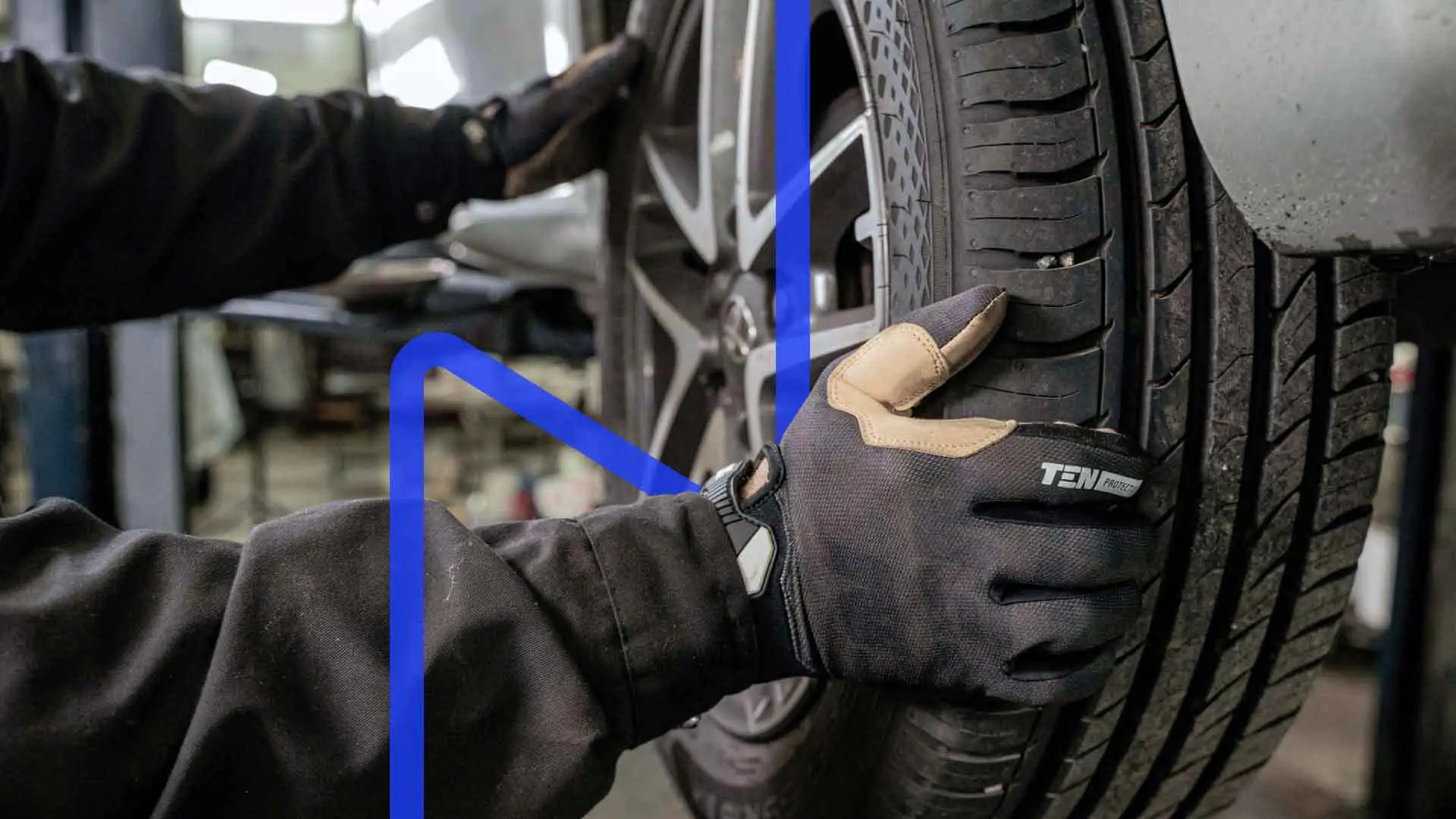It's important for mechanics, automotive professionals, and shop owners to wear gloves when working on vehicles in the shop. The best gloves for mechanics protect workers from safety issues, grit, and grime on their fingers. Gloves also protect cars—like the new peanut butter leather interior on a 2024 Tesla—from dirt and maintain a clean appearance for concerned customers.
Gloves for mechanics are also important for productivity. For example, gloves that protect hands from extreme weather keep fingers nimble. This protection is especially for employees working during the winter in snow-covered areas like upstate New York.
There are many different tasks mechanics require gloves for. Different types of gloves keep mechanics firmly in the driver's seat while doing oil changes, engine work, paint jobs, detailing cars, and more. Shops should have gloves for each of these jobs and more to keep their mechanics safe and optimize their effectiveness all year round.
Top Gloves for Mechanics
There are almost as many types of mechanics gloves as there are reasons for catching a flat tire. Some of the most widely used include:
Oil-Resistant Gloves: These gloves for mechanics are prime for working on messy jobs. Examples include things like oil changes, transmission work, and cooling systems. Good versions of these gloves are touch-screen-capable.
Precision Gloves: This glove type is optimal for delicate work, which might include electrical system components or detailing vehicles. These gloves are usually thinner than other glove types and provide more maneuverability.
Disposable Gloves: Your mechanics will want disposable gloves when they're working with contaminants or on the inside of vehicles. Many pros prefer 5-millimeter nitrile gloves for their garage, but disposable gloves are as thick as 6 millimeters to offer full protection against nasty chemicals. Good brands are also abrasion-resistant.
Welding Gloves: Technicians who work with general power tools like electric grinders will appreciate these gloves. Many prefer leather gloves to deal with sparks/heat. A reliable pair covers up both the wrist and the forearm to minimize exposure to sparks and other unavoidable side effects from using power tools.
Extreme Cold Gloves: The best winter gloves for mechanics safeguard them from cold temperatures. Credible ones have as many as seven different layers to keep your digits warm. Other features include leather and lining around the glove to maximize their warmth.
Choosing the Right Gloves
Selecting the right type of gloves for employees involves considerations beyond the specific task they'll be used for and how the gloves will impact the work and overall performance of technicians. For instance, improperly sized gloves can compromise precision in tasks, and some tasks may involve high heat or other injury risks.
Size: The ideal gloves for mechanics aren't one-size-fits-all. It's crucial to recognize that sizing can vary among different brands. Reputable manufacturers often provide sizing information on their websites or product packaging. If in doubt, checking customer reviews on platforms like Amazon can offer valuable insights.
Material: The materials used in mechanics' gloves significantly impact their suitability for specific tasks. For instance, latex is excellent for tasks involving contaminants or when a secure grip is essential, especially with power equipment.
Weatherproofing: Some gloves come equipped with features like waterproofing and covered padding, making them valuable in cold weather. Others offer heat protection through rubber knuckles, impact resistance, and a secure hook-and-loop closure.
Durability: Assessing durability is crucial when choosing gloves. Certain gloves boast cut-resistant features, ideal for working on hot surfaces or within the intricate components of engines.
Like A Hand in a Glove
Getting the right gloves for automotive professionals is crucial for helping them increase their productivity and safety while working in shops. There are gloves for working on messy, oily jobs, delicate jobs requiring precision, power tools, and jobs in extreme weather conditions. Considering the implications for each scenario can guide shops to procure the right glove for the job.
Ready to gear up for your next repair job?




